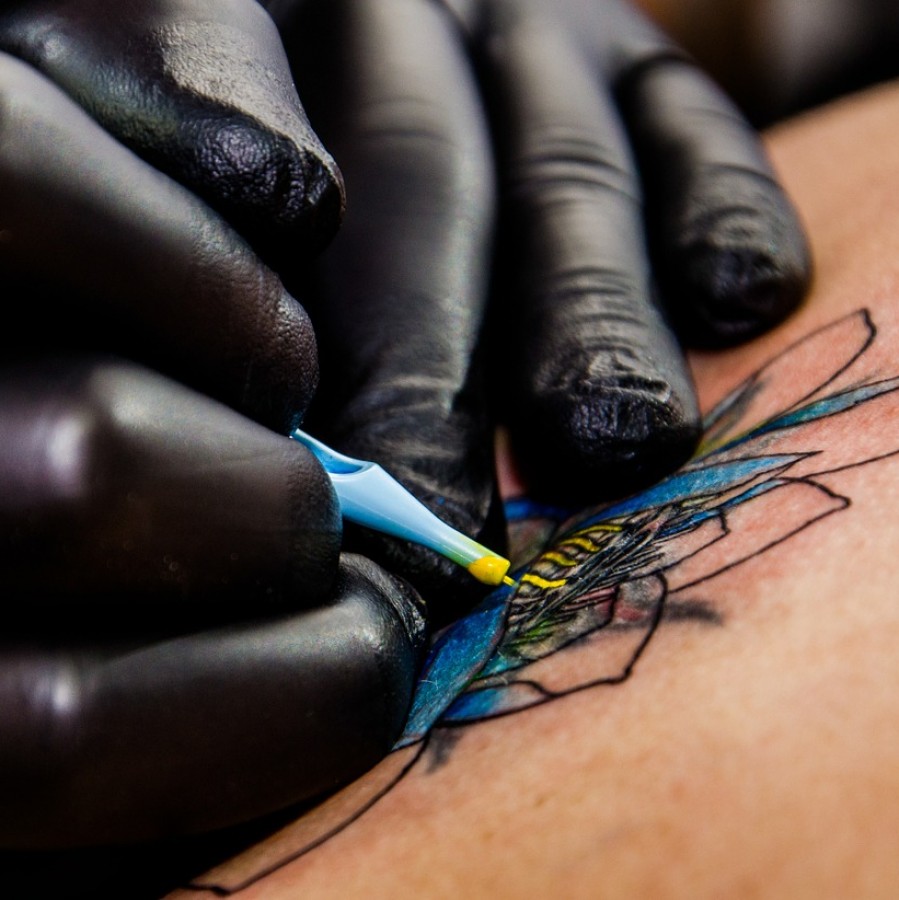Frequently, when someone expresses their interest in a new tattoo or piercing to an adult they are immediately put down. They are told it is “unprofessional” or to “make sure it is hidden.” But is that stigma changing?
Tattoos date back thousands of years. The oldest European mummified human was discovered in the Alps Mountains in 1991. The mummy is estimated to be over 5,300 years old and had 58 tattoos. Evidence shows tattoos being common from wall paintings of humans found in Ancient Egypt from 2000 BC.
Tattoos have different meanings and reasons depending on the culture they come from. They have been used for symbolism, marking criminals and slaves or even communicating among spies. Nowadays, tattoos are mostly based on symbolism and are a form of art.
If tattoos have been around for thousands of years, why do older generations find them so disruptive? In the last century, tattoos have had a negative spotlight. Older generations often associate tattoos with criminals and loose morals and deem them “unprofessional and distracting” because tattoos used to be popular amongst soldiers and circus performers and did not fit the corporate culture image.
Corporate culture has almost always revolved around “professionalism” and how older generations perceived that word. Corporations hire employees not just based on their work-life, but their outside life as well. They believe tattoos and piercings are unprofessional and can cause disruptions between employees and consumers. However, Millennials have been changing this perception.
Studies have shown only 16% percent of adults over the age of 55 having at least one tattoo. That is compared to 40% of people the ages 18-34 and 36% of people ages 35-54 having at least one tattoo. The number of Millennials getting tattoos is continually increasing and it is becoming more socially acceptable.
Tattoos are expected to be flaunted in the work world when Millennials start to take over businesses. Hy-Vee employee Aidan Fitzgibbon has one tattoo on each of his forearms which he keeps visible at work. “My job allows me to keep my tattoos visible because they do not cause distractions or prevent me from my work tasks,” he said.
Tattoos are permanent markings on the body and are often chosen thoughtfully. “ My tattoos are personal to me and I did not get them just to cover them up,” Fitzgibbon said. “They are a piece of me and I am glad it is becoming more acceptable to not have to hide who I am from the world because older generations don’t approve.”
The same goes for piercings. Younger generations are often ridiculed for having multiple piercings because older generations think it is strange to want to poke holes in their bodies and think they’ll regret it when they are older. But piercings can mean a lot more than just “holes” to some people.
Senior Cara Blunk has 10 piercings and is looking forward to getting more in the future. “I got most of my piercings for the look, but my sister and I have two matching piercings,” Blunk said. “We both love how they look and it was a good bonding experience for us.”
Blunk’s mother has slightly different views on the piercings. “She thinks that less is better, but she supports my style, individuality and what makes me feel and look beautiful,” she said. Blunk feels fortunate to have accepting parents because she knows that some may make their kids take the piercings out and not have the opportunity to express themselves.
Companies allowing their employees to flaunt their individuality in their tattoos and piercings does not mean they have to allow inappropriate ones to be shown.
Tattoos and piercings can make someone feel comfortable in their skin and ease emotional pain. Hiding them can make them uncomfortable and may affect how they perform at work. Employees being allowed to express themselves and be confident may also help customers feel more comfortable and accepted in the company as well.
The growing number of people getting tattoos and piercings gives many hope that they will not have to hide who they are because of older generations’ opinions. They hope the stigma of them being “unprofessional” will soon fade away.









